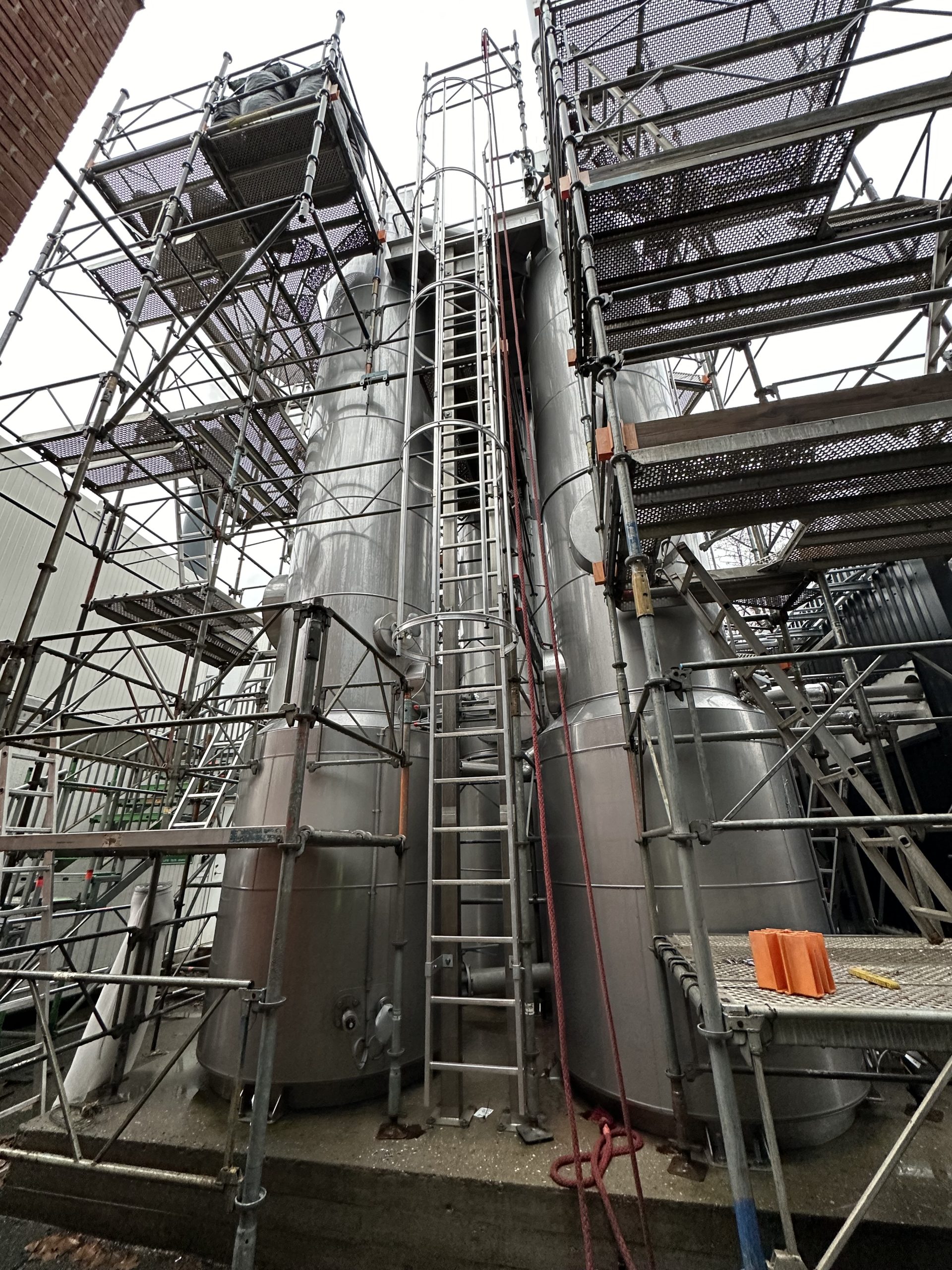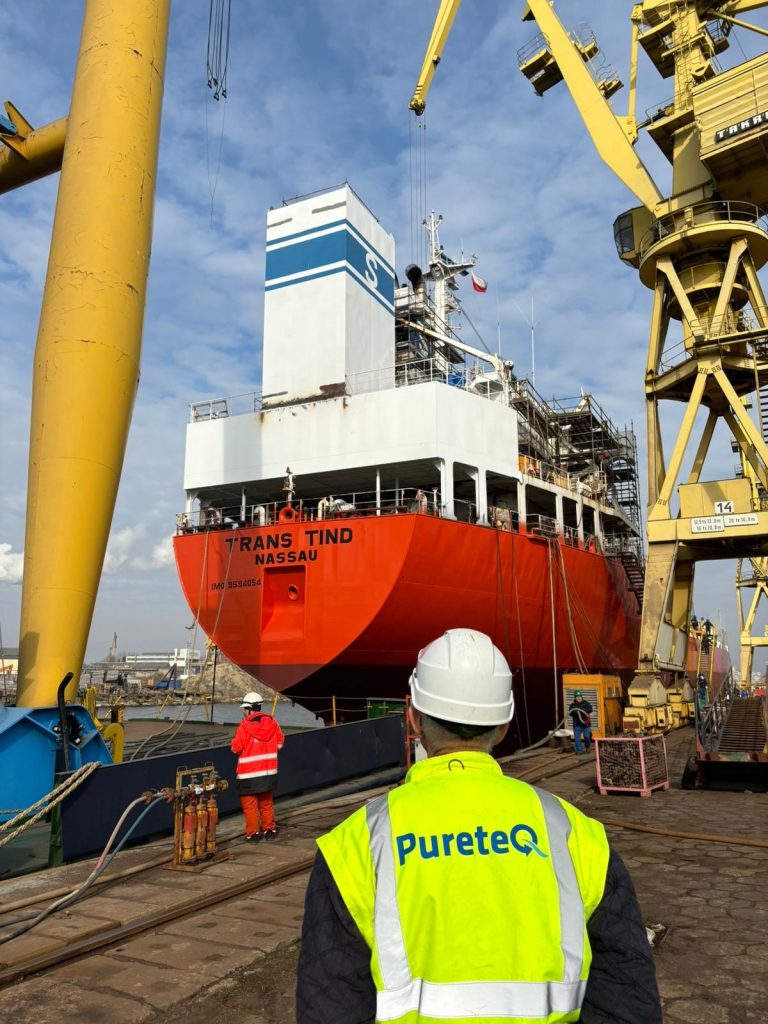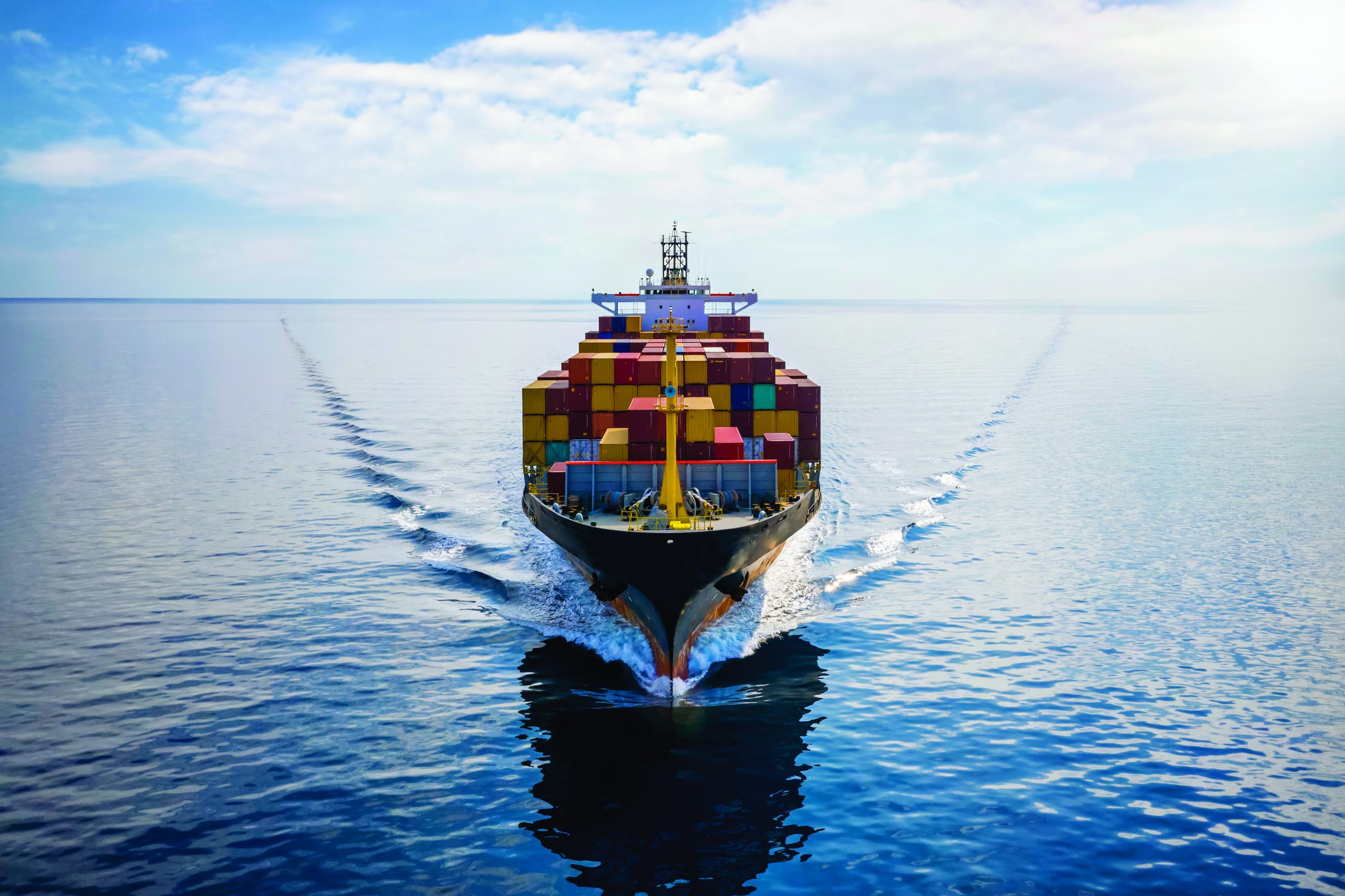Scrubbers: an evolving story
Scrubbers are not new, and they are likely to be around for the foreseeable future

Many in the shipping and bunkering industry see exhaust gas cleaning systems (scrubbers) as a temporary technology.
However, according to Anders Skibdal, CEO of scrubber manufacturer PureteQ, this perception is changing “as it becomes evident that we neither have the energy nor the capacity to produce e-fuels at scale for many years to come”.
Whatever the perception, the installation of SOx scrubbers continues. Almost 20% of all newbuildings from Chinese shipyards are being equipped with scrubbers. Retrofitting of scrubbers in Europe is also ongoing.
Scrubbers have existed for more than 100 years and remain a viable technology with numerous applications. The first scrubbers in shipping were inert gas scrubbers for tankers, followed by exhaust gas recirculation (EGR) scrubbers to reduce NOx emissions from larger marine diesel engines, and then SOx scrubbers to reduce sulphur and particle emissions. The next evolution of the technology involves absorption towers and desorption towers for carbon capture, as well as scrubbers for unwanted emissions from new e-fuels.
According to Skibdal, scrubbers are here to stay in one form or another “and they do not pollute – combustion of fuel does”.
He notes: “Predicting future ship fuel has become nearly impossible, prompting ship owners to find ways to secure the needed capacity. However, only a fraction of the required green fuels seems to be available, necessitating a focus on future-proof seaborne logistics that are cost-effective and, at the same time, comply with stricter global regulations. The low-hanging fruit is energy optimisation in any form, and this seems to have taken the headlines, replacing the wonders of methanol and ammonia. Additionally, we see an ever-growing interest in Onboard Carbon Capture & Storage (OCCS).”
“At PureteQ, we do not find this relevant until some of the uncertainties in the value chain are resolved, such as legislation, infrastructure, classification, safety, measurements, etc. The “minus C” in the EEDI/EEXI and CII must be defined and measurable to ensure a level playing field for owners, operators, and technology providers,” says Skibdal.
Recently, scrubbers have come under attack from NGOs and politicians in Scandinavia while Denmark intends to ban emissions from scrubbers within a 12 nautical mile zone. If implemented, this means that vessels transiting through Danish waters can still use open-loop scrubbers, but vessels bound for Denmark will have to use compliant fuel and switch off scrubber systems.
This is straightforward for SOx scrubbers but may pose a problem for EGR scrubbers, inert scrubbers, etc, which will need to establish more tank capacity, as bleed-off is not permitted.
Skibdal adds: “Hopefully, the Danish government will come to its senses and allow for cleaned bleed-off and instead apply stricter border limits for the wash-water. A ban would increase air pollution and CO2 emissions, contradicting the purpose of scrubber implementation, which is to reduce air pollution. Instead of banning technologies, politicians should establish goal-based legislation, enforce stricter emission limits, maintain technology neutrality, and ensure robustness to attract investment in environmental initiatives. As technology providers, we support stricter regulation with fair enforcement to ensure a level playing field.”
18/05/2024

get
in touch

Constructive Media
Constructive Media
Hornbeam Suite
Mamhilad House
Mamhilad Park Estate
Pontypool
NP4 0HZ
Tel: 01495 239 962
Email: ibia@constructivemedia.co.uk

On behalf of:
IBIA London Office
Suite Lu.231
The Light Bulb
1 Filament Walk, Wandsworth
London, SW18 4GQ
United Kingdom
Tel: +44 (0) 20 3397 3850
Fax: +44 (0) 20 3397 3865
Email: ibia@ibia.net
Website: www.ibia.net

Emails
Publisher & Designer: Constructive Media
ibia@constructivemedia.co.uk
Editor: David Hughes
anderimar.news@googlemail.com
Project Manager: Alex Corboude
alex@worldbunkering.net
